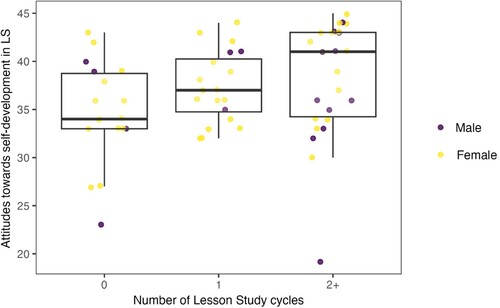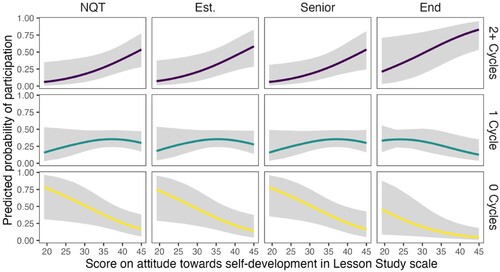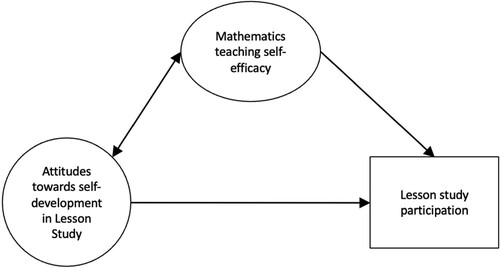Figures & data
Table 1. Phases of lesson study within one cycle (Clivaz and Ni Shuilleabhain Citation2019).
Table 2. Descriptive statistics for study variables.
Figure 2. Attitudes towards self-development in Lesson Study plotted across cycles of participation.

Figure 3. Predicted probabilities for attitudes towards self-development on participation in Lesson Study. Note. Career stages in current study are based on quartiles of years teaching experience recorded for study sample; NQT = Newly qualified teacher (<5 years); Est. = established teacher (5-11.5 years); Senior = Senior teacher (11.5-19 years); End = End quarter of career (>19 years).

Table 3. Results of bootstrapped non-parametric mediation analysis.
Table 4. Comparison of fit parameters for mediation models.

